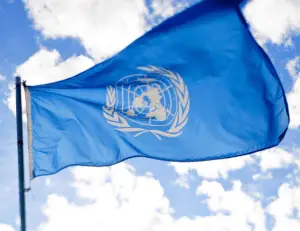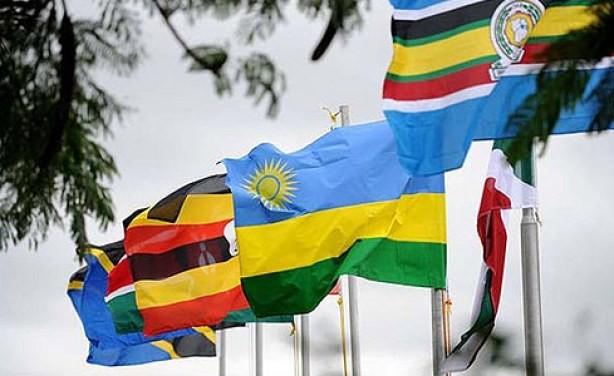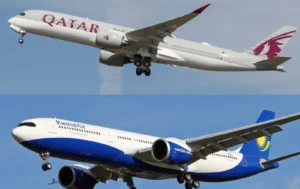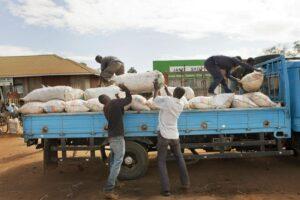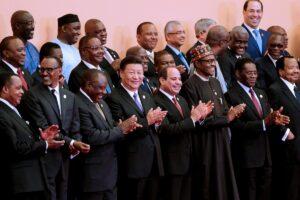- Africa’s new dawn: the rising role of digital and AI in agriculture
- Can Dangote Refinery Transform Africa Energy Ambition
- Gallup Survey: 80 per cent of Kenyan Workers Are Disengaged and Seek New Opportunities
- Madagascar Man Freed from 5KG Tumor After 15-Year Struggle
- How women in Africa are perceived and treated
- Sugar consumption in Kenya to Increase to 1.23 Million Tonnes
- Can Somalia and Turkey Oil deal Bring Change in Somaliland
- Remittances to Kenya dropped to $371.6 million in June, marking a six month low
Uncategorized
The 97Fund, a Ugandan based Open-end Investment Vehicle (HoldCo) launched a $1 Million COVID-19 Relief Fund (the “Fund”) to bail out small businesses in Uganda that have been affected by the pandemic.
The 97Fund invests in high growth early-stage companies in Africa and is managed by Ortus Africa Capital.
The fund targets companies in sectors such as healthcare, tourism, education, finance, New Ways of working (NWoW) such as supply chains and logistics and the digital economy providing market places to businesses.
Kenneth Legesi, Manager of the 97Fund said that the pandemic has disrupted Uganda’s social and economic landscape as seen through the different sectors across the board.
“The Ministry of Finance, Planning and Economic Development projected economic growth would decline from 6 per cent to 5.2 per cent, with an estimate of 2.5 million Ugandans likely to fall back into poverty due to the pandemic. Businesses are feeling the effects …
In this column called “The Indicator,” we will be taking an economic or financial statistic from East Africa and breaking it down into bite-sized nuggets of knowledge for investors.
This month’s indicator figure is 816.
816 of what?
There are a total 816 innovation professionals in East African Community (EAC) countries as identified by inclusion of the word “innovation” in their current public job description according to a series of searches using the popular professional social networking site, LinkedIn.
This Indicator figure certainly does not incorporate all people involved in innovation, but seeks to use this metric as a rubric to stimulate discussion on the importance of innovation in East Africa for business competitiveness.
What do you mean by innovation professionals?
Innovation is defined as the process of creating a new method, process, product, or service.
People whose job is focused on innovation are considered innovation professionals who are typically …
The United Nations will invest a total of $106 million in the social and economic projects of Angola until 2021.
The outgoing UN resident coordinator in Angola, Paolo Balladelli said the organization intends to invest $53 million per year.
He said that Angola needs billions of dollars to solve major problems and the UN will continue to support. He said that funds will help implement academic, government and civil society programmes.
Mr Balladelli also added that the UN agencies are promoting various initiatives to support Angolan government in social and economic areas with a focus on projects supporting the fight against COVID-19 and prevention programme.
The UN official praised the Government of Angola for putting in place measures to prevent and combat the COVID-19 pandemic, most importantly the timely adoption of the State of Emergency, which allowed the postponement of the spread of the new coronavirus and prepare material …
Last year Africa spent more money servicing debts than on the health issues of its public. According to World Bank, Africa is home to the world’s highest number of heavily indebted poor countries owing a total of US$493.6 billion in long term debts.
As the World Bank and IMF issue funding aid to help support Africa respond to the effects of COVID-19, countries including Tanzania and Rwanda have asked that the international community focus more on debt relief.
The IMF issued a statement listing certain countries as being eligible for debt relief and asked others to state their case—to explain why they deserve debt relief.
The Institute for International Finance, a club of some 450 banks and financial investment firms from across the globe, say they are working on temporarily suspending debt financing by the poorest countries, most of which are in Africa.
Also Read: Why high
…Africa has so far escaped the worst health consequences of the COVID-19 pandemic. However, the continent looks like it could be the worst hit from the economic fallout of the crisis: 80 million Africans could be pushed into extreme poverty if action is not taken. And disruptions in food systems raise the prospect of more Africans falling into hunger. Rural people, many of whom work on small-scale farms, are particularly vulnerable to the impacts of the crisis. It is therefore vital that the COVID-19 response address food security and target the rural poor.
At this time, the international development agenda is prioritizing health, economies and infrastructure. But there must also be a focus on food security, agribusiness and rural development. This is especially important on the African continent.
Agriculture contributes 65 per cent of Africa’s employment and 75 per cent of its domestic trade. However, the rich potential of agriculture …
By Caroline K.
There is something very … approachable about Mary; she gives off a welcoming presence. As the owner of a successful public relations company, she is a pioneer in her own right. Having started the business at the age of 23, she has come a long way to becoming the person she is now. She shares on what has made her journey a successful one this far.
- In your opinion, what does it take to run a successful PR company?
To be honest, I wouldn’t want to make it sound like there is a one-size fits all formulae for success but I will share what has worked for me. One: discovering myself, what my strengths are and what I am truly wired for. Two: my relationship with God; this has moulded me into a patient individual and has taught me how to perseverant.
- How have things changed
 For some time, investors rely on rating agencies to determine the investment risk of countries. It is a trend that developed economies usually receive high marks and a promising grade, while many emerging economies and bonds are poorly graded, even given sometimes the infamous “Junk” rating.
For some time, investors rely on rating agencies to determine the investment risk of countries. It is a trend that developed economies usually receive high marks and a promising grade, while many emerging economies and bonds are poorly graded, even given sometimes the infamous “Junk” rating.
With the current pandemic crisis that the world is present, markets have seen price shocks in all areas. If the agencies in charge of the economies handle these shocks properly , many economists suggest that the consequences may only be seen in the short-run. However, countries that might fail to act properly and that take actions once it’s too late, might be on the brink of a recession much like the one seen in 2008. Much like the 2008 global financial crisis, rating agencies were accused of aggressively downgrading countries whose economies were already strained. American Economist, Joseph Stiglitz, has previously accused rating agencies …
Modern technology could be the most pristine breakthrough the human race has ever achieved, as more noble solutions come to light each day proving that—decent forms of labour can be attained if the digital economy wages its fair share of war into the sector, and Tanzania is the exemplary figure in this labour-related case.
Huduma Smart is not an ordinary startup. It is a young, female-led enterprise that trains domestic workers and provides a job market for them via a tailored website, where employers can recruit workers of their choice per qualifications they desired and acceptability of a worker. More importantly, the startup provides health insurance and contracts to workers, among other necessities, to make their jobs respectable, a global missing recipe in the labour section.
The domestic labour landscape
It has been a custom for most average families and most of the middle-income households to require services from housemaids, …
At the turn of the new decade just months ago, the world was ecstatic that with it came some good tidings. To the utter shock of many, the first chapter of this decade has come with panic and grief brought about by COVID-19. Since the first case was reported in December 2019 in Wuhan, Hubei Province, China, the number of COVID-19 cases has risen globally to 2.7 million with 738,032 recoveries and 190,549 deaths – according to data from the Centre for Systems Science and Engineering (CSSE) at Johns Hopkins University. These figures are from 213 countries with 52 from Africa – only Comoros and Lesotho have not reported a case. Africa has recorded 25,940 cases, 6,968 recoveries and 1,240 deaths.
Alarmed by the potential of the global economy grinding to a halt, African leaders caucusing in Addis Ababa for the African Union’s (AU) 33rd Ordinary Session of the Assembly …






